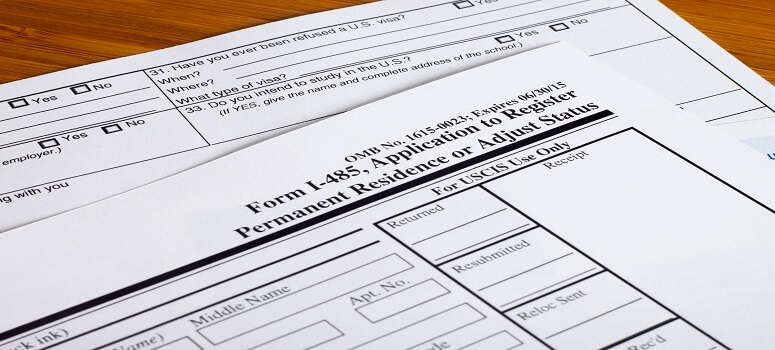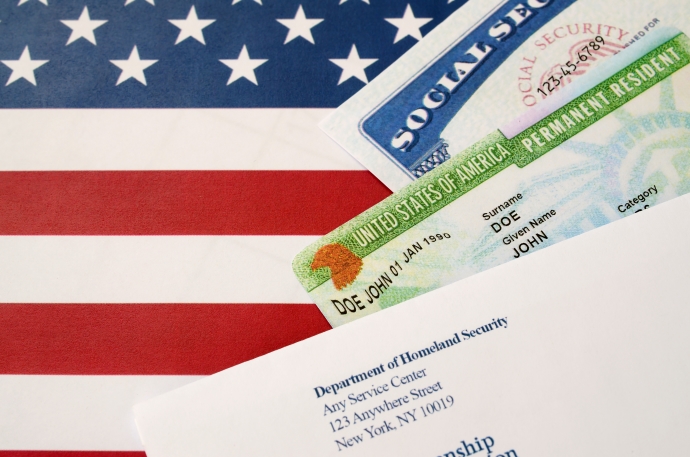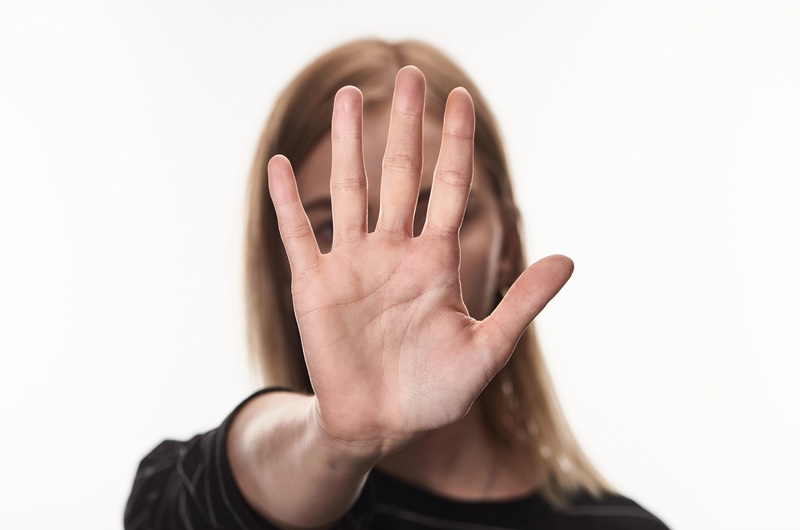A Step-by-Step Guide For Appealing A Denied Green Card
For many individuals dreaming of a better future, obtaining a US Green Card is the ultimate goal for living and working in the United States permanently. The process of obtaining a Green Card can be a complex and time-consuming journey, but for many, the reward of being able to live and work in the United States is well worth it. Hence, hiring a green card attorney is something you need to consider.
However, for some individuals, the journey can be abruptly cut short with the denial of their Green Card application. The denial of a Green Card application can be a difficult and emotional experience, leaving many questions unanswered and a sense of hopelessness. It’s natural to feel discouraged and defeated, but it’s important to know that denial is not the end of the road.
There are options available to appeal the decision and have another opportunity to secure a Green Card. It’s essential to understand the various options available, the process of filing an appeal, what to expect in the appeal process, and how to increase the chances of a successful outcome. Time is of the essence when it comes to appealing a denied Green Card application, so it’s recommended to act quickly and seek the professional assistance from a green card attorney to increase the chances of success.

The Green Card Process
Immigration Lawyer in Austin Texas Makes Obtaining a Green Card Easy
Before diving into the appeal process, it’s important to have a comprehensive understanding of the Green Card process. This information will serve as a foundation for the rest of the guide and provide context for the appeal process.
Eligibility Requirements
To be eligible for a Green Card, an individual must meet certain requirements set forth by the U.S. Citizenship and Immigration Services (USCIS). These requirements vary depending on the type of Green Card being applied for, but there are certain requirements that are common across all categories.
For example, an individual must be admissible to the United States, which means they cannot have a criminal record, have a contagious disease, or pose a threat to national security. Additionally, an individual must have a valid basis for obtaining a Green Card, such as being sponsored by an employer or family member, winning a diversity visa lottery, or being a refugee or asylum seeker.
Reasons For Green Card Application Denial
The USCIS has the authority to deny a Green Card application for a variety of reasons. Some common reasons for denial include:
Incomplete Or Incorrect Information
Applications that are missing information or contain incorrect information can be denied. It’s important to carefully review all information and documentation before submitting the application to ensure that it’s complete and accurate.
Inadmissibility
Individuals who are found to be inadmissible to the United States may be denied a Green Card. This can include having a criminal record, a contagious disease, or posing a threat to national security.
Fraud Or Misrepresentation
Applications that involve fraud or misrepresentation can be denied. This includes providing false information or using false documents to support the application.
Lack Of Evidence
Applications that lack evidence to support eligibility for a Green Card may be denied. This can include failing to provide proof of employment, sponsorship, or other requirements.
Processing Delays
In some cases, Green Card applications may be denied due to processing delays. This can happen when the USCIS does not receive a response from an individual or organization within the time frame specified.
By understanding the reasons for denial, individuals can take steps to avoid common mistakes and increase their chances of a successful outcome. If an application is denied, it’s important to carefully review the reasons for the denial and take steps to address any issues before filing an appeal.
Understanding The USCIS Denial Letter
Receiving a denial letter can be a frustrating and overwhelming experience, but it’s important to understand the information contained in the letter and take the necessary steps to appeal the decision.
The denial letter is a critical document in the Green Card application process and it’s important to understand what it contains and how to read it. The denial letter typically includes the following information:
Reasons For Denial
The denial letter will specify the reasons why the USCIS denied the Green Card application. It’s important to carefully review these reasons and address any issues with a green card attorney before filing an appeal.
Instructions For Filing An Appeal
The denial letter will include instructions on how to file an appeal, including the deadline for filing and the required forms and documentation. It’s important to carefully review these instructions and follow them to the letter.
Deadline For Filing An Appeal
The denial letter will specify the deadline for filing an appeal. It’s important to file the appeal within the specified time frame to ensure that the appeal is accepted and considered.
Case Number
The denial letter will include the individual’s unique case number. This number should be referenced in any correspondence with the USCIS and used to track the status of the appeal.
The importance of reading and understanding the denial letter cannot be overstated. The denial letter is the document that explains why the USCIS denied the Green Card application, and it provides the instructions for filing an appeal. Carefully reviewing the denial letter and understanding the reasons for denial is the first step in the appeal process and can increase the chances of success.
The denial letter provides important information on the appeal process, including the deadline for filing, the required forms and documentation, and the steps to take.
Understanding the reasons why your Green Card application was denied will give you an opportunity to appeal the decision. There are several options available for contesting a denied Green Card.
Available Options After A Green Card Denial
After a Green Card application has been denied, individuals have several options available to them. These options include:
Filing An Appeal
The most common option after a Green Card denial is to file an appeal with the USCIS. This involves submitting a written appeal and any supporting documentation within a specified time frame.
Reapplying
Individuals can also choose to reapply for a Green Card after a denial. However, they must address the reasons for the denial and provide any additional information or documentation requested by the USCIS.
Administrative Review
In some cases, individuals may be able to request an administrative review of the denial. This involves submitting a written request and any supporting documentation to the USCIS.
Judicial Review
In some cases, individuals may be able to seek judicial review of the denial in federal court. This option is typically used when the USCIS has made a mistake in denying the Green Card application or when the denial violates an individual’s legal rights.
The best option for individuals after a Green Card denial will depend on their specific circumstances, including the reasons for denial, their eligibility for a Green Card, and their available resources. In general, it’s advisable to seek the advice of an experienced green card attorney who can help navigate the appeal process and ensure that the best course of action is taken.
Regardless of the option chosen, it’s important to act promptly after a Green Card denial. The USCIS provides strict deadlines for filing an appeal or request for administrative review, and missing these deadlines can result in the loss of the right to appeal.

Filing An Appeal
Filing an appeal with the USCIS is the most common option after a Green Card denial. The appeal process involves submitting a written appeal and any supporting documentation within a specified time frame. The appeal must explain why the individual believes the USCIS decision was incorrect and provide any additional information or documentation to support the appeal.
To file an appeal, individuals must follow the instructions provided in the denial letter and complete the required forms. They must also provide a detailed written statement explaining why they believe the USCIS decision was incorrect and provide any additional evidence or documentation to support their appeal.
It’s important to note that filing an appeal does not guarantee that the USCIS will approve the Green Card application. However, it provides individuals with an opportunity to present their case and provide additional information or evidence to support their eligibility for a Green Card.
In addition to the written appeal, individuals may also choose to attend an appeal hearing. This provides an opportunity for the individual to present their case in person and respond to any questions from the USCIS. However, the appeal process can be complex and challenging. To give you a better chance of successfully appealing your denied Green Card, hiring a green card attorney would be helpful.
How A Lincoln-Goldfinch Law – Abogados de Inmigración Green Card Attorney Can Help
The appeal process for a Green Card denial can be complex and challenging, and seeking the assistance of a qualified green card attorney can greatly increase the chances of success.
Here are some of the ways that a Lincoln-Goldfinch Law – Abogados de Inmigración immigration attorney can help with the appeal process:
Reviewing The Denial Letter
An immigration attorney will review the denial letter and the reasons for the denial to determine the best course of action. They can also help identify any errors in the denial letter and provide guidance on how to address them.
Assessing Eligibility
A green card attorney can assess an individual’s eligibility for a Green Card and provide guidance on the best course of action, whether that be reapplying, filing an appeal, or seeking administrative or judicial review.
Preparing The Appeal
An immigration attorney can help individuals prepare the appeal, ensuring that it meets all the requirements of the USCIS and that it includes a strong and persuasive argument.
Representation At Hearings
If an appeals hearing is necessary, a green card attorney can represent individuals and provide guidance on how to present their cases effectively.
Navigating The Appeal Process
A green card attorney can help individuals navigate the appeal process, ensuring that they meet all deadlines and requirements and that they are prepared for any eventualities.
Seeking the assistance of a Lincoln-Goldfinch Law – Abogados de Inmigración green card attorney can greatly increase the chances of success in the Green Card appeal process. An experienced immigration attorney has the knowledge and experience necessary to help individuals navigate the complex and challenging appeal process and ensure that their rights are protected. Contact Lincoln-Goldfinch Law – Abogados de Inmigración now to start your appeal process.
Contact A U.S. Immigration Attorney Today!
Categories
How To Find Us
What Our Clients Say
“This Lawfirm is great, very professional and helpful. I love that they are always in communication and always available for when you have questions . 100% recommended by me and my family. Thank you Lincoln-Goldfinch Law – Abogados de Inmigración”





